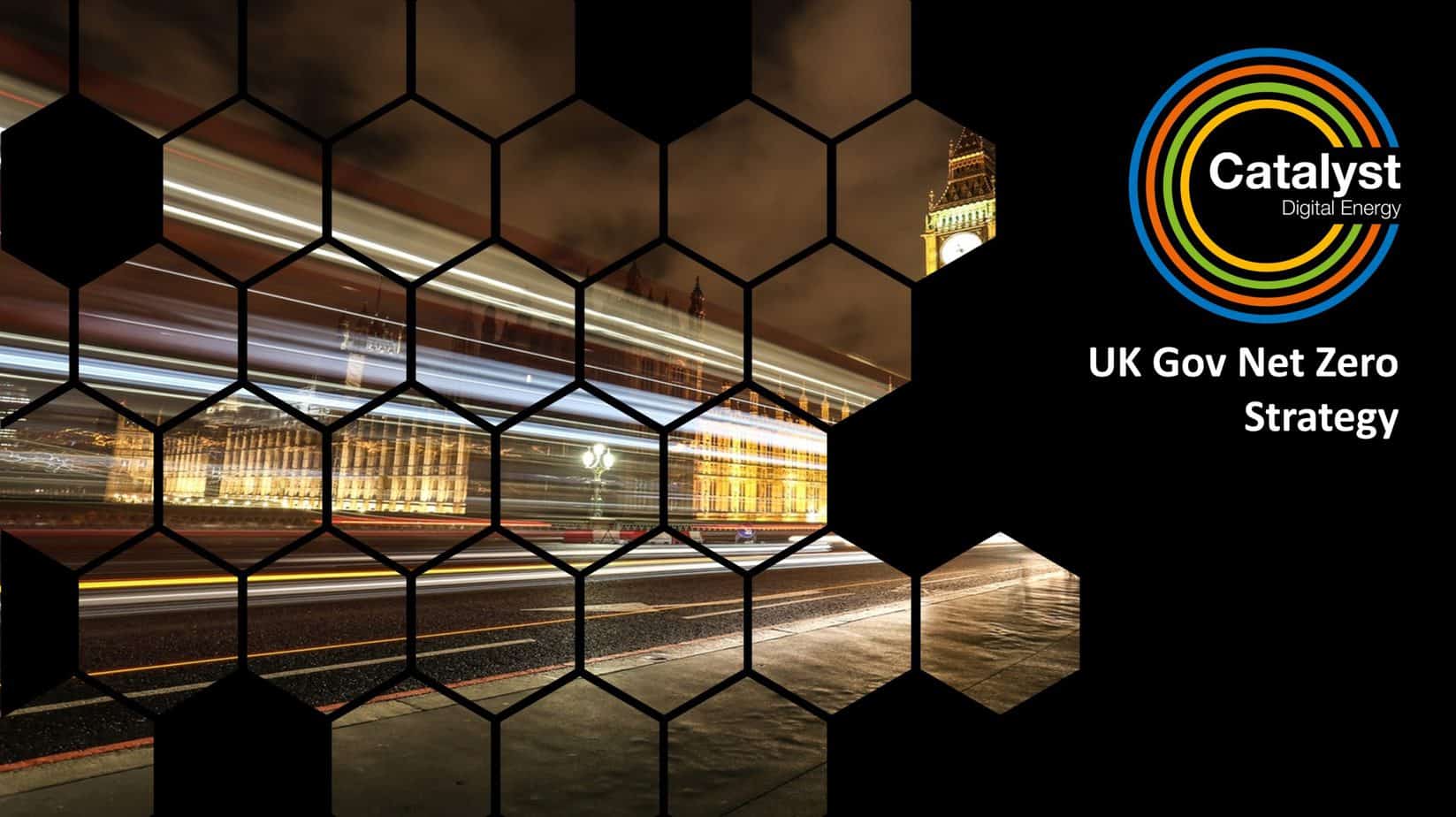UK Gov Net Zero Strategypolicies and proposals for decarbonising all sectors of the UK economy to meet its net zero target by 2050

Government publishes Net Zero Strategy
On the 19th October, BEIS published the UK Gov Net Zero Strategy – detailing policies and proposals for decarbonising all sectors of the UK economy to meet its net zero target by 2050 including provisions for power, fuel supply & hydrogen, industry, heat and buildings, transport, natural resources, and greenhouse gas removals.
Key policy commitments relevant to each sector are presented, some having previously been announced.
Requirements within the sector to meet the overall 2050 target as well as greater detail on the opportunities and priorities identified are also outlined. Key policy commitments that contribute to the strategy for power include:
> Ensuring all UK electricity comes from low carbon sources by 2035, subject to security of supply.
> Undertaking a review of the frequency of Contracts for Difference (CfD) auctions to accelerate generation deployment through the scheme.
> Delivering 40GW of offshore wind including 1GW of floating offshore wind by 2030.
> Implementing the Dispatchable Power Agreement (DPA) approach to supporting Carbon Capture Utilisation and Storage (CCUS) plant deployment.
> Securing a final investment decision on large-scale nuclear by the end of the current Parliament session, while taking measures to inform future investment decisions. It reiterated commitments to establish the Regulated Asset Base model, which would see upfront costs recovered from energy suppliers.
> A new integrated regime for onshore and offshore electricity networks proposed in BEIS’s Offshore Transmission Network Review in addition to providing £380mn of investment for the offshore wind sector.
> Reforming whole-system governance in line with net zero ambitions and ensuring consumers pay fair, affordable prices for their energy and engage in an energy market which offers them choices that support net zero.
> Introducing fixed minimum annual smart meter installation targets for suppliers from 1 January 2022.
> Exploring the system needs case for long duration storage and hydrogen in electricity.
UK Gov Net Zero Strategy – Key policy commitments contributing to the strategy for fuel and hydrogen include:
> An ambition for 5GW UK low carbon hydrogen production capacity by 2030.
> Providing up to £140mn to establish the Industrial Decarbonisation and Hydrogen Revenue Support (IDHRS) scheme to fund new hydrogen and carbon capture business models.
> Implementing the £240mn Net Zero Hydrogen Fund and finalising the Hydrogen Business Model and the Low Carbon Hydrogen Standard in 2022.
> Empowering the Oil and Gas Authority to assess operators’ plans to reduce their emissions levels against a net zero test and establish a climate compatibility checkpoint for future licensing.
Latest Business Energy NewsAll the latest UK energy market price news and views
About Catalyst
Catalyst Digital Energy is an award-winning energy consultancy with a focus on digital energy services, total energy contract lifecycle management and energy management services. It is revolutionising how businesses manage energy with its unique Energy Spend Management Platform, which is powered by Robotic Process Automation (RPA) EaaSi®.
Catalyst is digitising all aspects of energy, including billing, data, consumption, spend, payments, procurement and emissions reporting. When combined with its fully funded renewable energy solutions, Catalyst offers a unique and powerful approach to managing energy.




